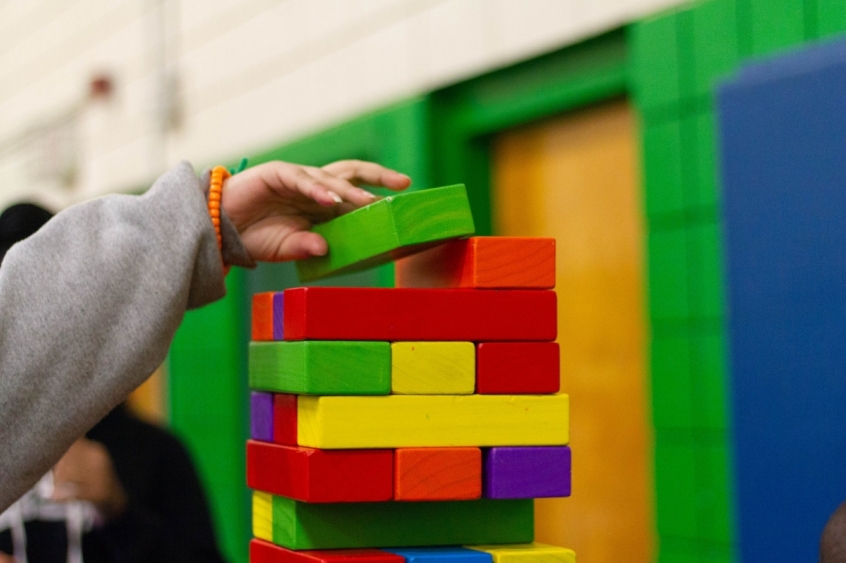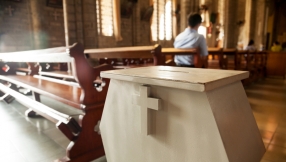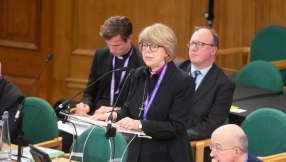
The teaching of LGBT relationships in schools has triggered heated protests outside schools in Birmingham, largely by members of the Muslim community. While they may not have made the national headlines, many Christian parents are just as concerned about what is being taught to their children in schools under the guise of equality and 'British values'.
These concerns have only been heightened by the new compulsory Relationships and Sex Education curriculum being rolled out by the Government in September 2020.
The guidance coming from the Department of Education (available to read here and here) has done little to allay parents' concerns. Two particularly contentious points are that the parents have limited rights to withdraw their children from the lessons and have no right at all to veto the content set by the school.
The Rev Lynda Rose, founder of Voice for Justice, tells Christian Today why she wants to see Christian parents taking a bolder stand against the Government's LGBT agenda and the teaching of values that contradict their core religious beliefs.
CT: While Muslim opposition has been very visible, it seems like there are not many Christians really speaking out about this. Do you think that's a fair assessment?
Lynda: I think that's absolutely right; Christians are not speaking out, which I think is incredibly short-sighted of them, because the whole thrust of the teaching is normalising and teaching LGBT values and gender fluidity to very young children when they do not have the intellectual or emotional resources to process any of this information. It's highly confusing for them.
Really, it's just state-sponsored abuse and it's going to have a profound influence on children and the way they think and act in the future.
CT: Why do you think Christians have struggled to find their voice on this?
Lynda: One of the problems with Christians over the years is that we've all prided ourselves in being tolerant, which is good; it's without question that some LGBT people have experienced rejection and some very difficult things in the past. But at the same time, the Bible is very explicit in prohibiting these kinds of behaviours - along with a whole range of other behaviours like adultery, fornication, incest and so on.
Jesus came to save sinners but he never ever said that sin is good. And that's the whole problem with this teaching at the moment; it is promoting behaviours that the Bible is very clear are sin. This teaching is actually very damaging for children and wider society, and for Christians not to be making a fuss about that, in a very profound sense they are betraying the Gospel; they are betraying the reason that Christ died because he died to save sinners from sin.
The whole thrust of the RSE regulations is to promote and normalise LGBT values. It's saying that sin is not sin and that this is actually good. It is an attack on Christian faith and it is an attack on children because there are very major repercussions from this.
We're seeing the highest levels of referrals for mental health problems and it's staggering, with around one in eight children having a diagnosable mental illness, according to the NHS' own figures. If you go back 20 years, the numbers were so low they weren't actually statistically significant.
If we stand back and ask ourselves why this is happening, it's partly because the family is breaking down but these behaviours will not give them happiness; there will be a risk medically. All these kinds of things are being promoted to children when they do not have the frame of reference to counter them. That is profoundly worrying.
CT: There has been LGBT content in schools for some time now but the new compulsory RSE curriculum coming into effect next year seems to have tipped the balance in terms of the response from parents in a way we haven't seen before, with protests outside schools. What do you make of these protests, because they are controversial?
Lynda: Yes, they are controversial but if you go back to the European Commission on Human Rights, it is the right of parents to have their children educated in line with their religious or philosophical beliefs, and the Human Rights Act 1998 enshrines freedom of thought and conscience.
There is a pile of English law protecting the right of parents to have their children educated in line with their own beliefs and values, and yet the Government is riding roughshod over that and saying 'no, every child has to have this teaching in order to fit them for life in modern Britain'. That is a fundamental denial of the religious rights that are enshrined in British law.
The other issue is that while schools are not required to give any kind of sex education at primary level unless they choose to do so, and parents have the right of withdrawal if they do, some of the schools are getting around that by saying 'well, all we're doing is teaching relationships education,' and so there is no right of withdrawal for the parents because 'this is not sex education anyway'.
In reality, though, if you tell a child of 4-years-old that some children have two mummies or two daddies, then because children are naturally inquisitive, they will ask what that means and so, immediately the teacher will find themselves in a minefield of trying to explain to young children what a family is and inevitably, some sex education is going to be brought into that.
READ MORE: All hail the new sexual and gender ideology
But I think we are seeing this level of opposition because the Government has really overstepped the mark here. If you go back to the Education Act 1993, when RSE was first introduced, it was absolutely clear that this was to protect children and to safeguard them against STIs and AIDS, and unwanted pregnancy. The whole thrust of it was to protect our young people.
But now, in this current RSE legislation, we've seen a major shift away from that because what they're saying is that children have to learn 'fundamental British values' to be ready for modern life in Britain and so, therefore, they must learn from age four about inclusivity and diversity.
We've seen a major shift away from protecting children from harm to the Government now trying to teach values. But parents will always be the primary educators of children and it is their responsibility to impart the values they want to their children.
The function of education is to teach children the tools for taking their place in society, subjects like maths, science English, history, geography and so on. It is not the function of schools to impose on children the values that the state decides are right. What we are seeing now is a naked attempt at ideological indoctrination and it's really quite frightening because it's making children an experiment in social engineering. And they deserve so much more than that.
CT: Some critics have picked up on the absence of marriage from the RSE curriculum, as if there is now an assumption that children will or should start to enter into relationships at some stage.
Lynda: This teaching is sexualising children. It's telling them: we expect you to become sexually active as soon as you become adolescents and this is fine. It's taken away the bedrock of marriage and the idea that you commit to one other person for life.
And yet look at the level of unhappiness and the lack of fulfilment in society. The family, like it or not, is one of the main building blocks of society and it's been that way for thousands of years. If you go back to pre-history, there was the tribe and the family that gave social order and a sense of belonging.
The family trains children in the way they should go to live happy and fulfillled lives, but the Government has airbrushed marriage out of this and it's going to be profoundly damaging for children because they will grow up expecting to have all of these relationships despite research now being well established that the more relationships you have, the less capable you are later on of actually committing to a long-term relationship.
We are actually setting kids up to have a series of break ups and possibly end up in life alone. All the while, in society today, we can already see that loneliness among the elderly is a major problem and it's not going to get any better.
CT: The Government has stressed that when it comes to what schools are teaching, they need to consult with parents. But do you think that the schools will listen? Are you optimistic that this will have any bearing at all on what's actually taught in schools?
Lynda: It's important not to demonise every school because some schools are trying really hard on this front and that point needs to be made.
But I remain profoundly disturbed because an awful lot, too, are actually following their own agenda and it's very often against what's actually laid down under law. And they are not actively consulting; they're not sitting down with parents and saying: well, how would you like us to approach this and what would you like to be in the lessons?
A lot of them are taking the approach of: well, we're going to do this, this, and this, and then we'll call a meeting with parents to tell them what we're going to do. And they call that a consultation. Well, I'm sorry but by no stretch of the imagination is that a consultation.
We have been contacted by so many parents saying: my children's school is suddenly doing this and I've gone along and said to them that they need to consult us and they have said, well, we just told you what we were going to do. Or the school has even lied and said 'no, we'll never do that', and a few weeks later the children have come home with books that are completely inappropriate and against what their parents want them to be learning.
READ MORE: Christian school governor suspended after questioning LGBT reading material
The Department for Education has said that parents do not have the right to veto what's included in the curriculum in any way and that is majorly worrying because what it actually says is: we don't care what you want your children to learn, this is the way it's going to be.
CT: The Department for Education has just issued new guidance about the measures schools can take if parents protest LGBT lessons. What do you make of that guidance?
Lynda: The new guidance from the Department for Education is incredibly worrying because it is not about encouraging schools to get together with parents to ask their views and try to work out a way forward together to look after children.
Instead, from start to finish, it's telling schools that the way to handle complaints from parents is: calling in police, taking legal action; or considering implementing injunctions and protection orders - even telling them that they should make a record of incidents in case they're needed later for legal or police action. That is so dangerously close to the Nazi German state which kept logs on the people who didn't go along with them.
CT: Reading through the guidance, there doesn't appear to be very much sympathy towards the point of view of the parents who are protesting.
Lynda: It's very arrogant advice that actually says: we know best, the state knows best. But actually I think we ought to give more respect to parents, and respect their views and values.
CT: Do you think that when the new curriculum comes into effect in September 2020 there might be an increase in Christian parents taking their children out of state schools and opting for homeschooling instead?
Lynda: We are getting a lot of contacts from Christian parents who are profoundly disturbed about the new curriculum and a lot of them have been talking about home education. But what I wish is that more Christian parents would stand up and say: we're not happy with this, this is against our faith. Because I think there would be a tremendous impact if they actually did that. And it's not hating people; it's not because we're bigoted or homophobic. In doing this, you are actually standing up for the faith, and for the protection and wellbeing of children.
If you add up all the people in this country who are Christian, or identify as Christian, or of other faiths, like Muslims, Jews, Sikhs, it is still a sizeable proportion, around half the country, while according to the Office of National Statistics, those who identify as lesbian, gay or bisexual account for around 2%.
How is it right that these rebranded values can be imposed on the whole of society? If Christians would just stand up and say: enough is enough, we don't hate people, we don't want to be nasty, but we want our faith respected and we want our children protected more than anything else.
CT: The senior leadership of the Church of England has been very quiet on this. Why do you think that is?
Lynda: It is possible for them to take a stand against it but they are just lacking a bit of backbone. It's that age old chestnut of them wanting to keep dialogue open with people and so the thinking is: we'll keep dialogue open by not actually making a fuss and that way, we'll be able to have an influence. And I'm sorry, that just doesn't work. You keep silent and you just end up losing your voice.
This very much happened with the Church in Nazi Germany. They could see what the Nazis were doing and they kept silent because they told themselves: if we can just carry on like this, we can have an influence for good. It didn't happen.
And I think that's the problem with, dare I say it, the hierarchy in the Church of England. I think they need to stand up for the Gospel a bit more. If they had had the backbone a few years ago and stood up when these measures were first being introduced and said 'no, we do not agree with this, this goes against the Christian faith and the Church of England, and as the official Church of this land, this view should be taken account of,' then we would not be where we are today.
And I think a lot of them are just being gullible. A lot of the Church of England schools are actually using the Stonewall anti-bullying programme even though Stonewall is a political body actively campaigning for LGBT rights.
Homophobic bullying within the mass spectrum of bullying is actually a very small percentage. If you just look at the stats, bullying because of broken homes, learning problems, disability or a person's appearance are a massive problem. Every school needs a good bullying programme but it does not need Stonewall's programme that somehow seems to imply that all bullying is homophobic bullying, when it's not. The Church of England should not have gone down that route.
CT: You've asked your supporters to write to MPs to raise their concerns. Is there anything else that parents can do?
Lynda: I think every parent should make it their job to ask the school what their policy on RSE teaching is and ask to see the curriculum. They should also ask to have input into that curriculum and they should make the point that the regulations lay down that the schools must draw up their programme in consultation with parents. Parents need to claim that right to be consulted.
Then they should ask for a written copy of what is going to be used. The school is under obligation to provide that and to provide information on their website. If parents are not happy with the responses they are getting from the school, I would advise that they talk to other parents to see how they feel and try to get together a small group so that they can go along together and air their concerns, and have the programme drawn up in real consultation. It's down to the parents. They've got to protect their children. Otherwise the children will just be exposed to harm long term.
If they go onto our website ParentPower.family they will find lots of advice on their rights and what they can do. They can contact us if they are experiencing problems and we can even provide advocacy support by sending someone to go along with them to the meetings with their schools.
Five bad reasons to teach LGBT sex education and five things Christians can do to speak up
School protests and parents of faith: can a way forward be found?
Church of England tells primary schools: Let little boys wear tutus and high heels if they want
Parents need to exercise their rights to challenge RSE lessons













